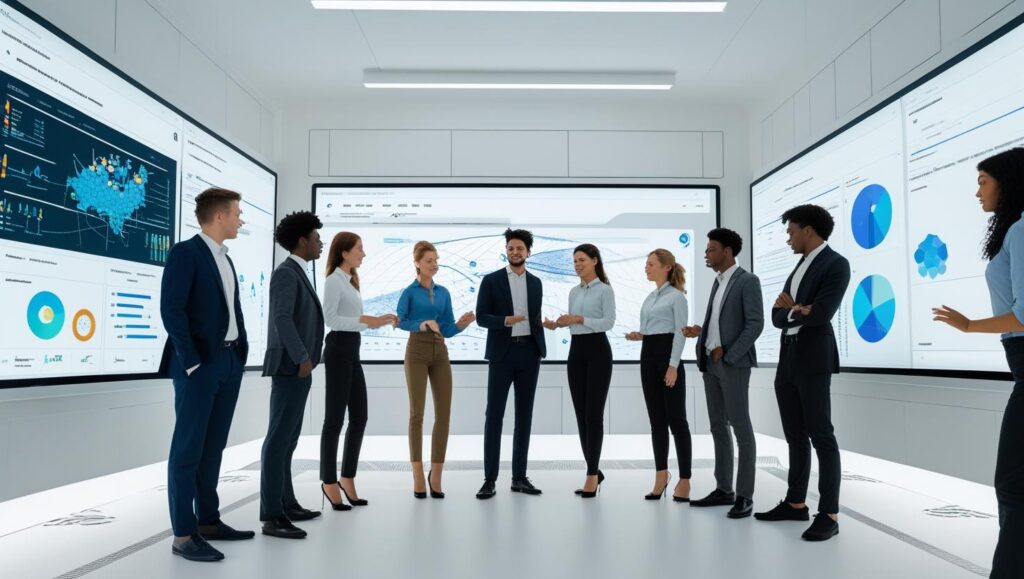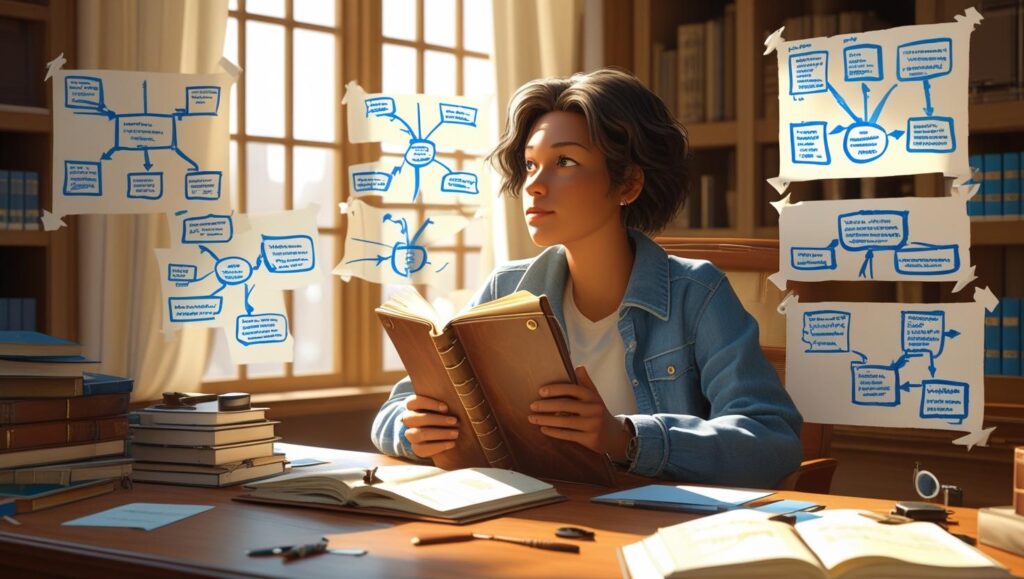Why is critical thinking important in the future? In a world filled with AI, fake news, and constant distractions, your ability to think clearly and independently will be one of the most valuable skills you can develop. Critical thinking isn’t just about analyzing problems—it’s the key to making better decisions, avoiding manipulation, and staying ahead in an uncertain world.
But what exactly is critical thinking? And why is it becoming so crucial?
Let’s dive into the reasons why critical thinking will be a superpower in the years ahead—and how you can build it starting today.
🧠 What Is Critical Thinking and Why Does It Matter?
Before we explore why critical thinking is important in the future, let’s understand what it really means. It’s the ability to process information logically, spot biases, ask the right questions, and come to smart conclusions based on facts—not emotions or groupthink. Critical thinking means evaluating information objectively, questioning assumptions, avoiding bias, and making decisions based on logic and evidence.
It includes skills like:
- Asking the right questions
- Analyzing facts
- Identifying logical fallacies
- Making well-reasoned conclusions
And in a future where AI writes content, social media floods us with opinions, and fake news spreads faster than truth—critical thinking becomes your best defense.
🚀 1. Why Critical Thinking Is Crucial for Future Jobs

As AI handles routine tasks, critical thinking becomes the edge humans have. The jobs of tomorrow demand smart decision-makers and thoughtful innovators who can solve complex problems, adapt to new challenges, and think beyond algorithms. That’s why critical thinking is important in the future workplace.
✅ According to the World Economic Forum, critical thinking is among the top 10 skills required for the future workforce.
Robots can process data. Only humans can think beyond it.
Want to master your time like high-performing thinkers? Read Time Blocking: 5 Powerful Strategies to Master Your Day.
🧠 2. It Helps You Spot Misinformation Fast
From deepfakes to AI-generated hoaxes, misinformation is on the rise. Knowing how to evaluate sources, cross-check facts, and question headlines is no longer just helpful—it’s essential.
📚 Studies show that people with strong critical thinking skills are better at identifying fake news and misinformation.
Without these skills, you’re more vulnerable to manipulation, especially online, where misinformation spreads fast and emotional triggers are used to influence opinions.
💡 3. Critical Thinkers Make Better Life Decisions

Choosing a career, buying a home, starting a business, managing finances—these are complex decisions that need clear thinking.
Critical thinkers:
- Ask better questions
- Consider long-term consequences
- Avoid emotional traps
- Make choices based on reason, not trends
🧠 It’s a tool that sharpens every part of your life—from productivity to personal growth, decision-making, communication, confidence, and long-term success.
Explore how intentional quiet boosts clarity in The Power of Silence: 9 Ways It Boosts Clarity and Confidence.
🌍 4. In a Globalized World, Perspective Matters
We now live in a connected, multicultural world. Understanding others’ viewpoints, cultures, and challenges requires empathy—but also critical awareness.
It helps you:
- Break out of echo chambers
- Understand global problems
- Make balanced judgments
This mindset creates better leaders, entrepreneurs, and citizens.
⚖️ 5. It Builds Resilience in Uncertain Times
The world is unpredictable—pandemics, economic shifts, climate change, AI disruption. Critical thinkers don’t panic. They pause. Analyze. Act with clarity.
They don’t follow crowds blindly. They stay grounded in facts and flexibility, think for themselves, ask better questions, and adapt with clarity and purpose.
🔍 According to Harvard Business Publishing, escaping the urgency trap is essential to improve critical thinking and make better long-term decisions.
🧠 6. It Sharpens Creativity and Innovation
Critical thinking isn’t just about analysis—it’s also about connecting ideas, spotting patterns, and seeing what others miss.
Innovators and creators who question assumptions and explore alternatives often develop breakthrough solutions.
🖥️ Steve Jobs and even modern educators emphasize deep thinking and questioning norms as key to innovation.
🛠️ 7. How to Build Critical Thinking Every Day
It’s not a talent—you can train it.
Try these strategies:
- Ask “why” 5 times to get to the root cause
- Challenge your own beliefs regularly
- Practice journaling your thoughts and questions
- Play logic puzzles or strategy games
- Read books that challenge your perspective
And most importantly, pause before reacting to choose a wiser response every time.
📚 Try reading “Thinking, Fast and Slow” by Daniel Kahneman—an excellent book to begin this journey.
🔁 Final Thoughts: The Future Belongs to the Thinkers

In the age of fast content, faster opinions, and AI-powered shortcuts, what will set you apart is your ability to slow down and think clearly.
The question isn’t just why is critical thinking important in the future—but how are you preparing to develop it today?
Because the future doesn’t need more noise.
It needs minds that think for themselves.
